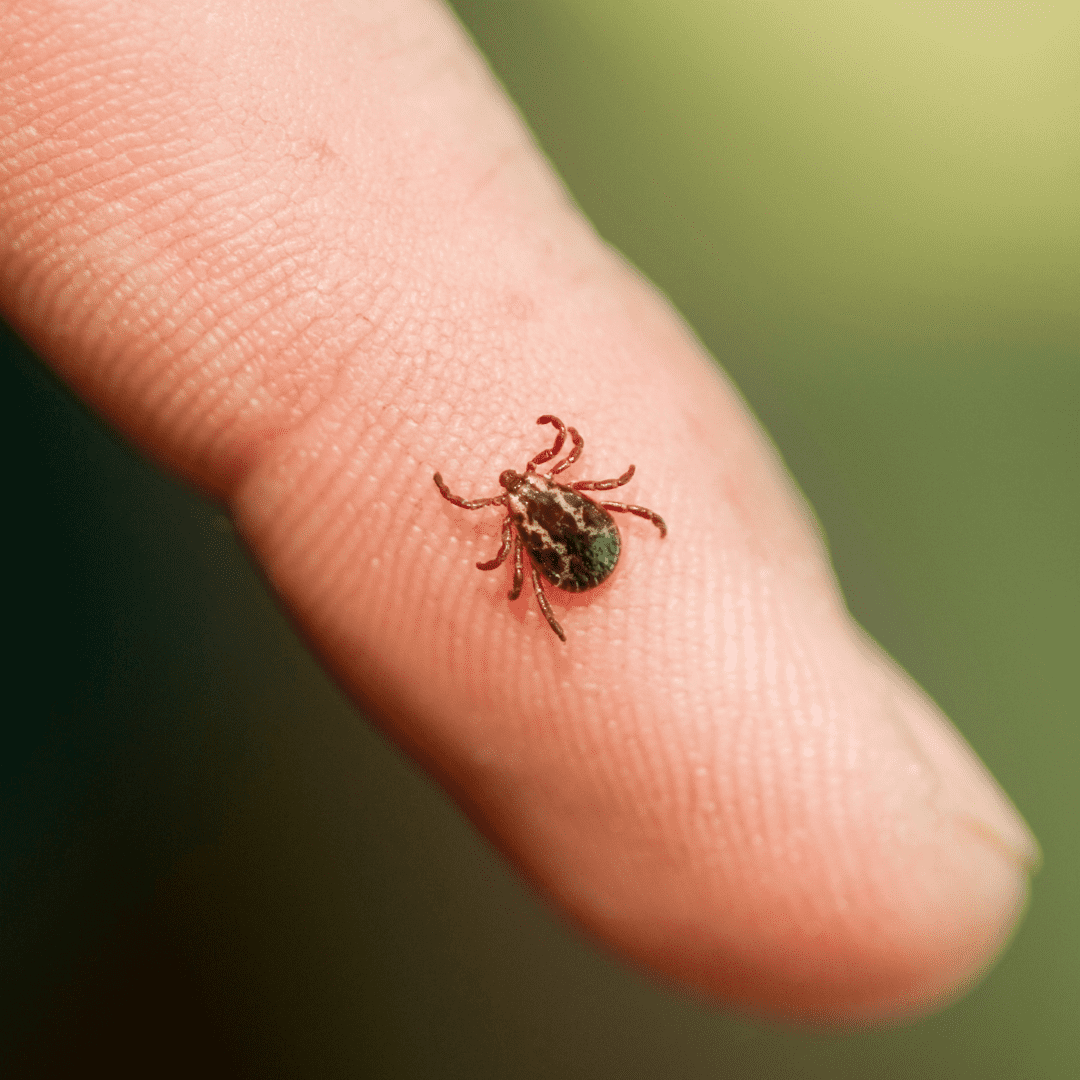Tick-Borne Encephalitis Vaccination
Tick-borne encephalitis (TBE) is a viral infection that is on the rise.
The disease causes a severe infection of the central nervous system, including the brain and spinal cord, which can lead to complications and lasting neurological damage and disability. Although rare, it is potentially life-threatening. There is no specific treatment available for TBE and the best way to protect yourself is through vaccination.
Those travelling to countries at risk of TBE should consider vaccination.
These high risk areas include:
- Most of Europe – now extending to parts of England
- Russia
- China and Japan
How do we protect against tick-borne encephalitis?
There is a vaccine against tick-borne encephalitis called Ticovac, that is widely used and highly effective.
You will require three doses of the vaccine in total. The primary schedule requires two vaccinations to be given 14 days apart, with a third dose to be given one year later.
TBE vaccination is available for adults and children over the age of one year. Children receive a lower dose vaccine called Ticovac Junior.
How does TBE spread?
TBE is predominantly spread through tick bites, as the name suggests.
However it can also be spread by ingesting unpasteurised milk or milk products from infected animals.
Tick bites are generally painless, and 40% of disease victims have no recollection of receiving a tick bite.
Travellers who take part in outdoor activities such as camping, hiking, hill-walking and even jogging, are at risk, and children playing outside may be especially vulnerable.
When should I get this vaccine?
Ticks are most active from March to October, but they can be active throughout the year, even on mild winter days.
Vaccination should be considered in the winter months so as to develop immunity in time before the tick season starts the following year.

Tick-borne Encephalitis Detected in England
In 2023, the UK Health Security Agency (UKHSA) confirmed three cases of TBE virus in patients in Yorkshire, Norfolk, and on the border of Hampshire and Dorset. Further tests on ticks across the country have found that the disease, which was commonly found in parts of Europe and Asia until now, is now present in the UK.
You are much more likely to catch TBE if you work outdoors or if you enjoy outdoor activities such as camping, hiking, dog-walking, countryside rambling and even jogging. Children playing outside may be especially vulnerable.
Vaccines can provide protection, and as there is currently no known cure for tick-borne encephalitis virus, those individuals who would be considered at higher risk are advised to be vaccinated as a precaution.
What is tick-borne encephalitis?
TBE is a virus infection transmitted through the bite of an infected Ixodes tick.
The virus belongs to the same family of viruses that relate to Yellow Fever, Japanese Encephalitis, Dengue Fever and Zika virus- known as flaviviruses.
TBE affects the central nervous system, can lead to neurological complications and can even be fatal in severe cases.
What are the symptoms of tick-borne encephalitis?
Many people with TBE can be asymptomatic
Many people with TBE can be asymptomatic but for those who do experience symptoms, initially they may present flu-like symptoms which lead onto a fever, headache and inflammation of the heart, pancreas, brain and spinal cord. The worst cases can lead to paralysis or permanent neurological damage and even death.
How else can I protect myself from tick bites?
Ticks are small parasitic organisms that live in wooded areas and fields.
In addition to having the TBE vaccine, you should try to avoid tick bites as much as possible.
When outdoors in areas where ticks are present, always wear long trousers and sleeves which have been treated with permethrin insecticide, or DEET insect repellent.
Check your skin carefully for ticks afterwards, and remove them safely with tick removers or forceps.
Ask our travel nurses for further advice. about ticks when you come to see us.
FAQs
TBE is endemic to areas of eastern, central, northern and increasingly western Europe; northern China, Mongolia, Russia, Japan and South Korea. Cases have occurred recently in England.
It is quite widespread and certain activities and locations within these countries increase the risk further.
You should book a travel consultation with a travel nurse to better understand your risk if you are unsure.
No. They are both typically transmitted by ticks, which is where the confusion comes from, and precautions to avoid tick bites will protect against.
However, they are separate diseases with different symptoms and risks. Tick-borne encephalitis is caused by a virus and Lyme disease is bacterial. Vaccines to protect against Lyme disease are not currently available but are in development.
No. Both illnesses cause encephalitis (inflammation and damage to the brain and nervous system), but TBE and JE are two distinct diseases in terms of the virus, transmission and geographical areas.
TBE is spread by ticks and JE is spread by mosquitoes.
See our Japanese encephalitis page for more information on JE.
The risk of TBE in England is considered low. There have only been small numbers of clinical cases. However, this reflects increasing and probably irreversible presence of the virus in the tick population, and growing risk. TBE risk in England is therefore on the rise.
As ticks live in forested and grassy areas, you are much more likely to catch TBE if you enjoy camping, hiking or are a dog walker. Those individuals would be considered higher risk and advised to be vaccinated as a precaution.
Between 10–12,000 cases of TBE are reported annually globally, but this number is thought to be an under-estimate because not all cases result in symptoms, not all symptoms result in a confirmed diagnosis, and not all cases are reported to public health authorities. Severe cases are relatively rare but have a very high impact.
Yes, this is the only option. TBE vaccination is not available on the NHS.
We will discuss your travel plans in detail, so a copy of your travel itinerary including proposed dates of travel, destination(s) you’re travelling to and length of your stay are all helpful details for our nurses. We’ll also discuss your health so information about your vaccination history to date is useful, as well as any medication you are currently taking.
The vaccine is given in your upper arm. We would therefore advise you to wear loose comfortable clothing or short sleeves for ease of access.
A full course of TBE vaccination consists of 3 vaccine doses. The initial (primary) course of vaccination consists of two vaccinations given a minimum of 14 days apart, followed by the third dose given 5-12 months later. Booster doses are advised every 3 years for those at ongoing risk.
The initial two dose course of vaccination protects for at least a year.
The third dose, given 5-12 months later, gives protection for up to 3-years.
A booster dose is advised every 3-years for continuing protection.
Yes. It is given routinely on a very wide scale in many European countries such as Germany and Austria. TBE vaccination is inactivated and does not contain live organisms. You cannot catch TBE from vaccination.
There is no specific treatment for TBE which is why the emphasis is placed upon prevention of the illness. Fatality occurs in up to 3% of European / Siberian strains, and up to 30% in Asian strains. People who survive severe infections are often left with lasting disability.
Those who are at risk should consider prevention of the illness with a TBE vaccine.









